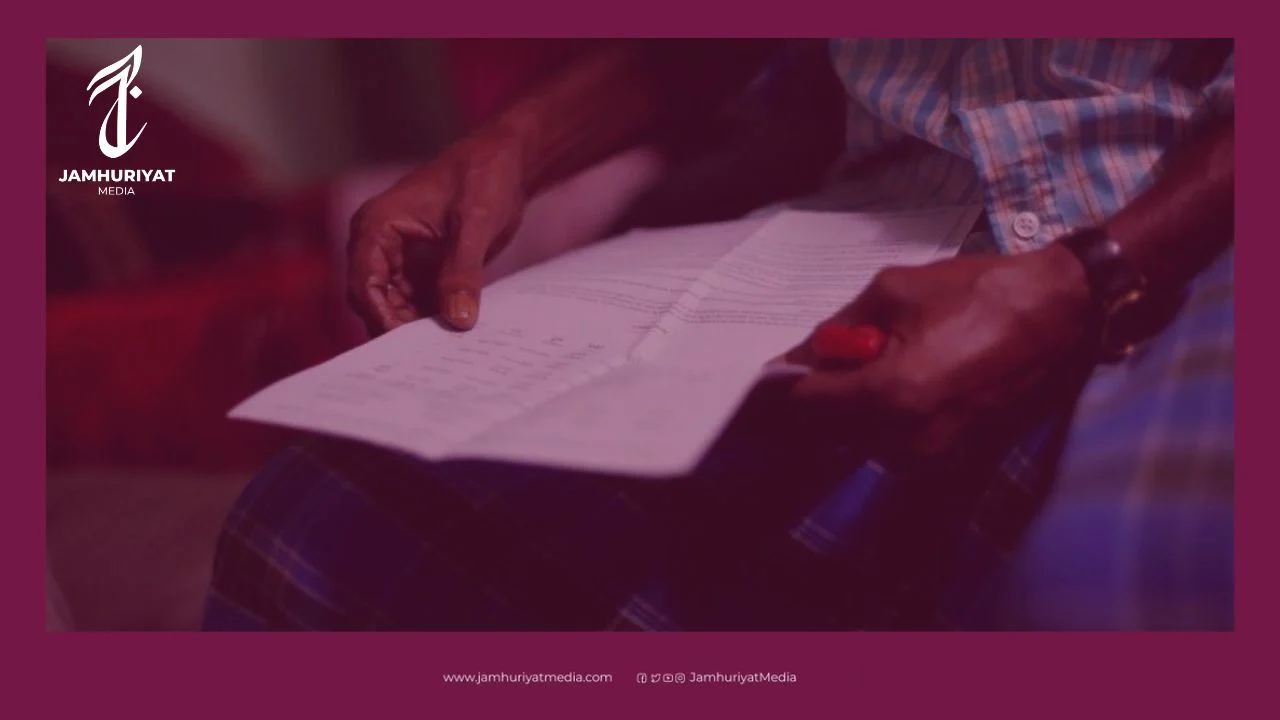NEW DELHI—Seven lakh Muslims were among the 16 lakh names that were left out of the final draft of Assam’s National Register of Citizens (NRC), said Chief Minister Himanta Biswa Sarma recently while releasing a religion-wise data of the mammoth exercise for the first time ever.
The exercise was conducted in accordance with a Supreme Court order, and a complete draft of the record of Indian citizens in Assam was published on August 31, 2019.
The chief minister said that the list included 1.5 lakh Gorkhas, 2 lakh Assamese Hindus (belonging to Axomiya and Koch-Rajbongshi castes) and 5 lakh Bangla-speaking Hindus. However, he withheld the identities of the remaining 3.5 lakh people.
In light of the recently notified rules for the implementation of the controversial Citizenship Amendment Act (CAA), Sarma has predicted the number of people he believes will seek Indian citizenship. “Only 3 to 6 lakh people will apply for the citizenship under the CAA and not 20, 18 or 15 lakhs or 1.5 crores, which some people are claiming. It can be 10% more or less but not more than 6 lakhs,” he reportedly told News Live, a local TV channel.
The chief minister is up against mounting anger in Assam over the new citizenship regulation, which was announced on March 11. Concerned about what they see to be an assault on Assamese indigenous culture, the Opposition (Congress and few regional parties) and other civil society groups are against the law that would expedite the naturalization of “persecuted” non-Muslim minorities from Bangladesh, Pakistan and Afghanistan.
When the law was passed in December 2019, Assam experienced intense demonstrations and public outcry.
Sarma even speculated that the Act would turn out to be a “fiasco” in the state, with the least number of people registering for Indian citizenship.
“We will have around 40 days by April 19 after the CAA guidelines were revealed. This will give sufficient time to comprehend the real situation. Thirteen Hindu families in Gujarat have already received citizenship under the CAA; however, as of yet, not many Assamese citizens have applied,” he has been cited by the channel as saying.
He added that after March 25, 1971, the cut-off date for being eligible to obtain Indian citizenship as per the Assam Accord, a large number of families — particularly Hindu Bengali families — entered Assam from Bangladesh, and some of them later left again.
The only documentation these families had was the refugee registration cards that the border authorities had given them because many of them had been denied ration cards at that time. Unfortunately, many names were left out of the NRC updating process because Prateek Hajela, the former NRC coordinator in the state, forbade these cards,” Sarma said.
Hajela, a Madhya Pradesh resident and an IAS officer of the Assam-Meghalaya cadre, was targeted by the Assam government last year and is set to be investigated for alleged irregularities committed during the updating of the register, which was intended to identify undocumented persons who might be present in Assam.
In 2019, the apex court had designated him as the NRC coordinator, who was tasked with supervising the entire NRC exercise.
The CAA rules have officially opened the door to citizenship based on faith. It says everyone, except Muslims, from the three nations is welcome to apply for Indian citizenship.
It’s true that anyone (not Muslims) who was excluded from the NRC may now apply for citizenship under the CAA, but doing so will require them to first identify themselves as a Bangladeshi.
Additionally, in accordance with the CAA rules, an applicant will only be eligible for benefits under the law if he or she is able to produce documentation — attesting to his or her ancestry from Bangladesh, Pakistan or Afghanistan.
They provided required documents prior to 1971 (the cutoff date) during the NRC exercise to establish their Indian citizenship; now, under the CAA, they will need to demonstrate that they or their ancestors are or were citizens of one of the three nations.
Many Hindus who failed to make it to the final NRC draft had ancestors who lived in British India, they never lived in Bangladesh or even East Bengal. How will they be able to connect their lineage to Bangladesh now?
Source: India Tomorrow

